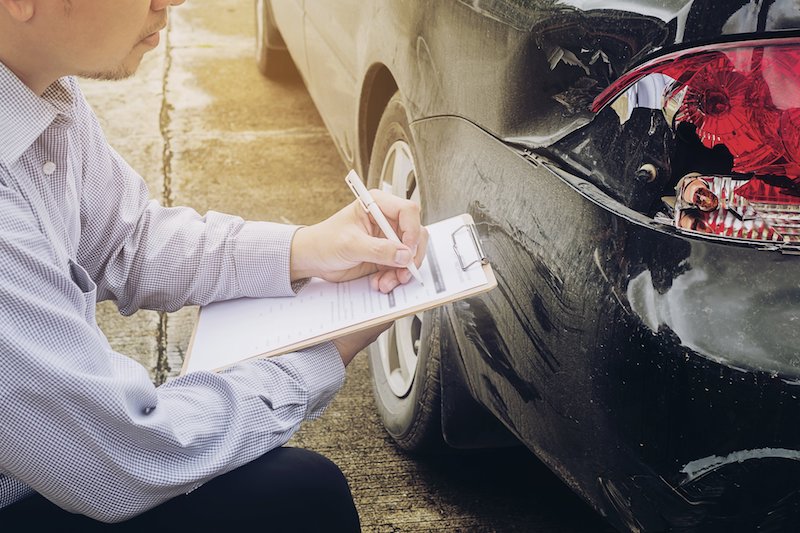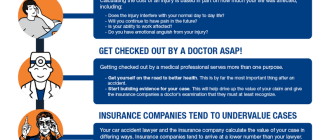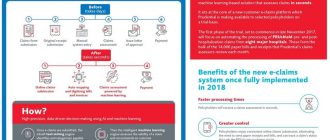
How to Handle Discrepancies with Your Car Insurance Adjuster.
When it comes to car insurance, discrepancies can be a common occurrence. Whether it’s a difference in the estimated cost of repairs or a disagreement over who was at fault in an accident, working with your insurance adjuster is crucial to resolving these issues.
Your car insurance adjuster is the person responsible for assessing the damage to your vehicle and determining the amount of coverage you are entitled to. They will review your claim and may conduct a thorough investigation to gather all the necessary information. It’s important to keep in mind that their goal is to ensure a fair and accurate settlement.
When dealing with discrepancies, it’s crucial to provide your adjuster with as much evidence and documentation as possible. This may include photos of the damage, police reports, and any witness statements. It’s also important to keep track of any expenses related to the incident, such as medical bills or towing fees.
It’s important to establish clear and open lines of communication with your adjuster. This means promptly returning their calls or emails and providing them with any requested information in a timely manner. Remember, they are there to help you through the claims process and can provide valuable guidance and support.
Tip: If you find yourself at an impasse with your insurance adjuster, it may be helpful to seek advice from a lawyer or a professional mediator. They can provide an unbiased perspective and help you navigate through any legal complexities.
Dealing with discrepancies in car insurance claims can be a frustrating process, but by staying organized, providing evidence, and maintaining open communication with your adjuster, you can increase your chances of reaching a resolution that is fair and satisfactory to all parties involved.
Understanding the Role of a Car Insurance Adjuster
When you’re involved in a car accident and need to file an insurance claim, you’ll likely come into contact with a car insurance adjuster. This individual plays a crucial role in handling your insurance claim and determining the amount of coverage you’ll receive. It’s important to understand the role of a car insurance adjuster to effectively navigate the claims process.
An insurance adjuster is a representative of the insurance company who assesses the damage to your car and determines the appropriate amount of money that should be paid for repairs or a total loss. They have expertise in evaluating damage and working with policyholders to ensure a fair and accurate claim settlement.
One of the primary responsibilities of a car insurance adjuster is to examine the damage to your vehicle. They will typically evaluate the extent of the damage, look for any pre-existing damage, and assess the cost of repairs. This may involve reviewing photographs, statements from witnesses, medical records, and other relevant information.
In addition to evaluating the damage, the insurance adjuster will also review your insurance policy to determine the coverage limits and deductibles that apply to your claim. They will then calculate the amount of coverage you are entitled to based on these factors and the terms of your policy.
Once the assessment is complete, the adjuster will work with you to settle the claim. This may include negotiating the cost of repairs with auto body shops, coordinating rental car services, or arranging for a total loss settlement if necessary.
Throughout the claims process, the car insurance adjuster serves as your main point of contact with the insurance company. They will provide updates on the status of your claim, answer any questions you may have, and work to resolve any discrepancies that arise.
| Assessing damage to your vehicle |
| Reviewing your insurance policy |
| Calculating the amount of coverage |
| Negotiating repairs and settlements |
| Providing updates and resolving discrepancies |
It’s important to remember that the car insurance adjuster works for the insurance company, not for you. While they are responsible for ensuring a fair settlement, their ultimate goal is to protect the interests of the company they represent. It’s essential to stay informed, ask questions, and advocate for your own rights throughout the claims process.
By understanding the role of a car insurance adjuster, you can work more effectively with them to reach a fair and timely resolution to your insurance claim.
Contacting Your Car Insurance Adjuster
When it comes to handling insurance discrepancies, one of the key players in the process is your car insurance adjuster. They are the ones responsible for evaluating your claim and determining the amount of compensation you are entitled to.
It is important to establish clear and effective communication with your insurance adjuster in order to ensure a smooth claims process. Here are some tips for contacting your car insurance adjuster:
1. Collect all relevant information: Before contacting your insurance adjuster, make sure you have all the necessary information about your claim, including the date and location of the incident, the names and contact information of any parties involved, the police report, and any photos or documentation related to the damages.
2. Be prepared: When reaching out to your insurance adjuster, be prepared to provide them with all the details of the incident and the extent of the damages. This includes a clear description of what happened, any injuries sustained, and an itemized list of the damages to your vehicle.
3. Keep records: Make sure to keep a record of all your communication with your insurance adjuster. This includes any emails, phone calls, or in-person meetings. Document the date, time, and content of each interaction to ensure transparency and accountability.
4. Be proactive: If you haven’t heard back from your insurance adjuster within a reasonable timeframe, don’t hesitate to follow up. You can send a polite email or make a phone call to inquire about the status of your claim. It is important to stay proactive and advocate for yourself throughout the process.
5. Ask questions: If you have any questions or concerns about your claim, don’t hesitate to ask your insurance adjuster for clarification. They are there to help you and provide you with the necessary information. Clear communication is key to resolving any discrepancies and ensuring a fair outcome.
Remember, your insurance adjuster is there to assist you and guide you through the claims process. By establishing effective communication and being proactive, you can work together to handle any discrepancies and reach a resolution that is fair and satisfactory.
Gathering Relevant Documents
When working with your car insurance adjuster to handle discrepancies, it is important to gather all the relevant documents. These documents will provide evidence and support your claims during the adjustment process.
One of the key documents to gather is your car insurance policy. This will outline the coverage you have, including any deductibles or limits that may apply. It is essential to have a clear understanding of your policy to effectively communicate with your adjuster and navigate through the discrepancies.
Additionally, make sure to gather any police reports or accident reports related to the incident. These reports provide an official record of the event and can help establish the facts surrounding the discrepancies.
Another important document to gather is any documentation related to the repairs or maintenance of your car. This can include invoices, receipts, and any estimates from mechanics or body shops. These documents will help determine the pre-existing condition of your car and provide evidence of the damages being claimed.
It is also advisable to gather any photographs or videos of the car both before and after the incident. This visual evidence can help support your claims and provide a clear picture of the damages that occurred.
Lastly, keep a record of any correspondence or communication with your adjuster. Make sure to document the date, time, and content of each conversation. Having a written record can help ensure that there is no miscommunication or misunderstanding between you and your adjuster.
By gathering all these relevant documents, you will be better equipped to handle discrepancies with your car insurance adjuster. These documents will provide the necessary evidence and support to help you navigate through the adjustment process effectively.
Providing Accurate and Detailed Information
When working with your car insurance adjuster to handle discrepancies, it is important to provide accurate and detailed information. This will help ensure a smoother and more efficient process for resolving any issues or questions that may arise.
Here are some suggestions on how to provide accurate and detailed information:
| 1. Be prepared: | Come prepared to each conversation or meeting with your adjuster. Have all relevant documents, such as your car insurance policy, photographs of the damages, and any other supporting evidence, readily available. |
| 2. Provide clear descriptions: | When describing the details of the incident or discrepancies, be as specific and clear as possible. Use dates, times, and exact locations if applicable. This will help your adjuster understand the situation better. |
| 3. Include relevant facts: | Make sure to include all relevant facts related to the discrepancies in your account. This could include information about the accident, any witnesses, or even previous repairs or damages that may be relevant. |
| 4. Avoid speculation: | Stick to providing factual information and avoid speculating or making assumptions. If you are unsure about something, let your adjuster know and they can help guide you through the process. |
| 5. Keep records: | Keep a record of all conversations, emails, and documentation related to the discrepancies. This will help ensure that there is a clear and accurate record of the information provided throughout the process. |
By providing accurate and detailed information to your car insurance adjuster, you can help streamline the handling of discrepancies and improve the chances of a satisfactory resolution. Remember to stay organized, be clear and factual, and keep thorough records of all communications.
Coordinating with the Car Insurance Adjuster for Inspection
When it comes to handling discrepancies in your car insurance claim, one key player you will need to work closely with is the insurance adjuster. The adjuster is responsible for assessing the damage to your vehicle and determining the extent of coverage provided by your insurance policy.
Coordinating with the adjuster for an inspection is an important step in the claims process. Here are some steps you can take to ensure an efficient and successful inspection:
1. Contact your insurance company: Reach out to your insurance company as soon as possible to report the incident and initiate the claims process. Provide them with all relevant details and request an appointment with an adjuster for an inspection.
2. Document the damage: Before the adjuster arrives, it is helpful to document the damage to your vehicle. Take clear and detailed photographs from different angles, and make notes of any visible discrepancies or concerns.
3. Be present during the inspection: It is in your best interest to be present when the adjuster inspects your vehicle. This way, you can point out any additional damages or discrepancies that may have been missed.
4. Provide necessary information: Be prepared to provide the adjuster with any necessary documents, such as the police report, repair estimates, or medical records related to any injuries you sustained. This will help them accurately assess the claim.
5. Ask questions: If you have any questions or concerns about the inspection process or the adjuster’s findings, don’t hesitate to ask. The adjuster is there to assist you and address any inquiries you may have.
6. Follow up: After the inspection, follow up with your insurance company to ensure that all necessary information has been received and that your claim is being processed. Stay in communication with the adjuster to stay informed about the status of your claim.
By effectively coordinating with the car insurance adjuster for inspection, you can help ensure that any discrepancies are properly handled and that your claim is resolved in a timely and fair manner. Remember to keep documentation organized, ask questions when needed, and stay engaged throughout the process.
Understanding the Inspection Process
When handling discrepancies with your car insurance claim, one essential step in the process is the inspection. The insurance adjuster will conduct a thorough examination of your vehicle to assess the extent of the damage and determine the coverage.
The adjuster will inspect both the exterior and interior of your car, looking for any visible damage or signs of previous repairs. They may take photographs or notes to document their findings.
During the inspection, the adjuster will also assess the pre-accident value of your car. They will consider factors such as its age, condition, mileage, and any prior damage. This evaluation helps determine the appropriate compensation for the repair costs or total loss of your vehicle.
It is important to be present during the inspection and point out any areas of concern or additional damage that might have been missed. The adjuster will listen to your input and take it into account when finalizing the evaluation.
Once the inspection is complete, the adjuster will compare their findings with your initial claim and any repair estimates you have submitted. If there are discrepancies, they will work with you to resolve them and determine a fair resolution. This may involve requesting additional documentation or conducting further investigations.
Understanding the inspection process and actively participating in it can help ensure that all damages are accurately assessed and that you receive the appropriate compensation from your car insurance company.
Reviewing and Analyzing the Adjuster’s Report
After an accident, your car insurance adjuster will investigate the damages to your vehicle and prepare a report. It is essential to review and analyze this report carefully to ensure that all the necessary repairs and expenses are covered by your insurance.
The adjuster’s report will contain detailed information about the damages to your car, including photographs, diagrams, and an itemized list of the repairs needed. It will also include the estimated costs for each repair and any applicable deductibles.
When reviewing the report, pay close attention to the accuracy of the information provided. Make sure that all damages are accurately described, and any pre-existing issues are not included in the report. If you notice any discrepancies or missing details, reach out to your insurance adjuster to discuss these concerns.
Additionally, evaluate the estimated costs for repairs. Compare them to your own assessment or quotes from reputable repair shops to ensure that they are reasonable and fair. If you believe that some of the costs are inflated or unnecessary, discuss them with your adjuster and provide evidence supporting your position.
Keep in mind that the adjuster’s report is a crucial document that will determine the coverage and compensation you receive from your insurance company. It is essential to handle this process with care and attention to detail to ensure a fair and accurate resolution to your car insurance claim.

| Review the report for accuracy and completeness | Reach out to your adjuster to address any discrepancies |
| Evaluate the estimated repair costs | Compare them to independent assessments and discuss any concerns with your adjuster |
| Document any pre-existing damages that are not listed | Provide the necessary evidence to your adjuster |
Handling Discrepancies in the Adjuster’s Report
When dealing with a car insurance claim, it’s not uncommon to encounter discrepancies in the adjuster’s report. These discrepancies can range from minor errors to significant omissions or incorrect information. It’s important to address these discrepancies promptly to ensure you receive a fair settlement for your claim.
Here are some steps you can take to handle discrepancies in the adjuster’s report:
- Review the report carefully: Start by carefully reading through the adjuster’s report in detail. Pay close attention to the description of the damages, the estimated repair costs, and any additional information or notes provided.
- Note any discrepancies: As you review the report, make a note of any discrepancies or inaccuracies you find. This could include missing damages, incorrect descriptions, or underestimated repair costs.
- Gather evidence: Collect any evidence that supports your claim and contradicts the adjuster’s report. This could include photographs of the damages, repair estimates from reputable mechanics or body shops, or witness statements.
- Contact your insurance company: Reach out to your insurance company and let them know about the discrepancies you’ve found in the adjuster’s report. Provide them with the evidence you’ve gathered and explain why you believe the report is inaccurate.
- Request a reevaluation: Request that your insurance company reevaluate the adjuster’s report in light of the discrepancies and evidence you’ve provided. Ask for a different adjuster to be assigned if you believe the current one is biased or uncooperative.
- Consider an independent appraisal: If your insurance company is unwilling to address the discrepancies or you’re unsatisfied with their response, you may want to consider hiring an independent appraiser to assess the damages and provide an unbiased report.
- Seek legal advice if necessary: If the discrepancies in the adjuster’s report are significant and your insurance company isn’t willing to resolve the matter, it may be necessary to seek legal advice. An attorney can help guide you through the process of disputing the report and ensuring you receive a fair settlement.
Remember, it’s essential to be proactive and assertive when addressing discrepancies in the adjuster’s report. By following these steps and advocating for yourself, you can increase the likelihood of a fair and accurate assessment of your car insurance claim.
Negotiating for a Fair Settlement
When it comes to handling discrepancies with your car insurance claim, it’s important to effectively communicate and negotiate with your insurance adjuster. Here are some tips on how to negotiate for a fair settlement:
1. Gather all necessary documentation: Before reaching out to your adjuster, make sure you have all the necessary documentation related to your claim. This may include police reports, photographs of the damage, medical bills, and repair estimates. Having these documents readily available will help support your case for a fair settlement.
2. Review your policy: Take the time to review your car insurance policy thoroughly. Familiarize yourself with your coverage limits, deductibles, and any relevant exclusions. Understanding what your policy covers will help you negotiate effectively with your adjuster.
3. Present your case clearly: When communicating with your adjuster, clearly and concisely present your case. Provide a detailed account of the accident and any relevant information you have gathered. Be prepared to explain why you believe the settlement offered is inadequate based on the extent of the damage and any additional costs you have incurred.
4. Be open to negotiation: Negotiation is a key part of the claims process. Be open to discussing different settlement options with your adjuster. If you believe the initial offer is too low, provide supporting evidence and reasons why you believe a higher settlement is justified. Be prepared to compromise and find a mutually fair resolution.
5. Seek assistance if needed: If you are having difficulty reaching a fair settlement with your adjuster, it may be beneficial to seek assistance from a lawyer or a claims advocate. They can provide guidance and representation throughout the negotiation process, ensuring your interests are protected.
By following these tips, you can navigate the negotiation process with your insurance adjuster effectively and increase your chances of securing a fair settlement.
Understanding the Compensation Process
When you are involved in a car accident and file an insurance claim, it is important to understand the compensation process. Your car insurance adjuster will handle the evaluation of your claim and determine the amount of compensation you are entitled to.
The first step in the compensation process is assessing the damages to your vehicle. The adjuster will inspect your car and document any visible damage. They may also request repairs estimates or contact an auto body shop for further evaluation.
Once the damages have been assessed, the adjuster will review your insurance policy to determine your coverage limits. They will also consider any deductible that applies to your claim. This information, along with the evaluation of the damages, will help the adjuster determine the amount of compensation you will receive.
During the compensation process, it is important to provide any necessary documentation or evidence to support your claim. This may include photos of the accident scene, medical bills, or repair estimates. The adjuster will review this information and consider it when evaluating your claim.
After the evaluation is complete, the adjuster will present their findings and offer a settlement. This may involve repairs to your car, reimbursement for medical expenses, or compensation for pain and suffering. It is important to carefully review the settlement offer and ask any questions you may have before accepting it.
If you are not satisfied with the initial settlement offer, you have the right to negotiate with the adjuster. Provide any additional evidence or documentation that supports your case, and work with the adjuster to reach a fair resolution.
Understanding the compensation process can help you navigate the car insurance claims process more effectively. By working closely with your insurance adjuster and providing the necessary information, you can ensure that you receive the compensation you are entitled to.
Appealing the Adjuster’s Decision, if necessary
If you find yourself dissatisfied with the decision made by your car insurance adjuster regarding the handling of your claim, you have the option to appeal the decision. It is important to remember that appealing a decision should only be done if you have substantial evidence to support your case. Here are the steps you can take to appeal the adjuster’s decision:
| 1 | Review the adjuster’s report |
| 2 | Gather any additional evidence or documentation that supports your claim |
| 3 | Compose a letter explaining your reasons for appealing the decision |
| 4 | Include all supporting evidence and documentation with your appeal letter |
| 5 | Send the appeal letter via certified mail to your insurance company |
| 6 | Follow up with the insurance company to ensure they received your appeal |
| 7 | Wait for the insurance company to review your appeal and make a decision |
| 8 | If the insurance company denies your appeal, consider seeking legal advice |
Remember, appealing the adjuster’s decision should only be done if you have strong evidence to support your case. It is important to remain organized and keep track of all documentation and correspondence related to your claim. By following these steps, you can ensure that your appeal is handled in a professional manner.
Coordinating with Repair Shops and Service Providers
When handling discrepancies with your car insurance, it is important to coordinate with repair shops and service providers. These professionals play a crucial role in assessing and fixing any damages to your vehicle.
First, it is essential to provide your insurance adjuster with the relevant information about the repair shop or service provider you have chosen. This includes the name, contact details, and location of the establishment. This way, the adjuster can communicate directly with them to gather information and discuss the necessary repairs.
Once the adjuster has contacted the repair shop or service provider, they will work together to assess the damages and estimate the cost of repairs. It is important to keep in mind that the adjuster’s role is to ensure that the repairs are necessary and reasonable, so they may request additional documentation or inspections if needed.
During this process, it is crucial to maintain open communication with both your insurance adjuster and the repair shop/service provider. This ensures that everyone is on the same page regarding the repairs, costs, and timelines involved. If any discrepancies arise, such as disagreement on the scope of repairs or pricing, it is important to promptly address them to prevent any delays in the repair process.
Once the repairs have been completed, the insurance adjuster will review the documentation provided by the repair shop or service provider. They will ensure that all necessary repairs have been made and that the costs are reasonable and within the policy limits. If any discrepancies are identified, the adjuster will work with the repair shop or service provider to resolve them.
In summary, coordinating with repair shops and service providers is essential when handling discrepancies with your car insurance. By providing the necessary information and maintaining open communication, you can ensure a smooth and efficient repair process.
Keeping Detailed Records and Documentation
When dealing with discrepancies in your car insurance claim, it’s crucial to keep detailed records and documentation throughout the process. These records will help you maintain an organized approach and provide evidence to support your case.
Start by documenting all communication with your insurance adjuster. Keep a record of every phone call, email, or in-person meeting, including the date, time, and a summary of what was discussed. This will help you keep track of any agreements made or promises given.
Additionally, make sure to save copies of any written correspondence, such as letters or emails, related to your claim. These documents can serve as evidence in case of any disputes or misunderstandings. It’s also a good idea to take notes during conversations with your adjuster, highlighting any important points or instructions.
In addition to communication records, gather and organize all relevant documents related to your claim. This may include the police report, repair estimates, medical bills, and photographs of the damage. Keep these documents in a safe and easily accessible location.
It’s important to handle these documents with care. Make copies of everything and store the originals in a secure place. If you need to send any documents to your adjuster, use a reliable and trackable delivery method. This will ensure that your records are safely received and will help avoid potential disputes over missing or lost documents.
By keeping detailed records and documentation throughout the claims process, you can effectively manage any discrepancies that may arise. These records will not only help you in communicating with your adjuster but also serve as evidence to support your insurance claim.
undefined
What should I do if I disagree with the insurance adjuster’s findings?
If you disagree with the insurance adjuster’s findings, you should gather any evidence or documentation that supports your position. You can then present this information to the adjuster and make your case for why you believe their assessment is incorrect. If you are still unsatisfied with the outcome, you may need to escalate the matter to a supervisor or consider seeking legal advice.
How long does it usually take for an insurance adjuster to review a claim?
The time it takes for an insurance adjuster to review a claim can vary depending on a number of factors, such as the complexity of the claim, the availability of necessary documentation, and the workload of the adjuster. In some cases, it may take just a few days for the adjuster to complete their review, while in others it could take several weeks. It is important to follow up with the adjuster and ask for an estimated timeline for their review.
Can I hire my own adjuster to negotiate with the insurance company?
Yes, you can hire your own adjuster to negotiate with the insurance company. This is known as a public adjuster, and their role is to work on your behalf to ensure that you receive a fair settlement. Public adjusters are licensed professionals who have expertise in dealing with insurance claims. However, it is important to note that hiring a public adjuster may come with additional costs, as they usually work on a contingency fee basis.
What documents should I provide to the insurance adjuster?
When dealing with an insurance adjuster, it is important to provide them with any relevant documentation related to your claim. This may include things like photographs of the damage, estimates for repairs, medical bills, police reports, and any other evidence that supports your claim. It is also important to keep copies of all documents for your own records. By providing thorough documentation, you can help the adjuster accurately assess your claim and potentially expedite the process.






